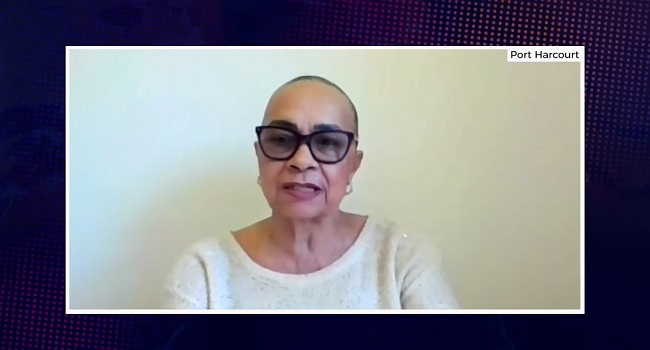Editorial
A Glance at the Evolution of Christmas Celebration

By Matthew Eloyi
Christmas is a Christian festival that celebrates the birth of Jesus Christ and includes various Christian, pre-Christian and secular activities. The progression of Christmas into the festivity we know and celebrate today is somewhat convoluted.
The Christmas we now celebrate on the 25th of every December has evolved over many centuries from different points of origin. Many myths, traditions and legends from different cultures entwined to form what we know as Christmas today. With the growing globalization, commercialism, modern media and the internet, Christmas will continue to expand and evolve either for good or bad.
Though Christmas is seemingly a Christian celebration commemorating the birth of Jesus Christ, many of the customs and rituals come from other traditions, both spiritual and secular. Christmas festivities were first chronicled in Ancient Rome in the fourth century. The celebrations were placed in December, during the time of the northern winter solstice.
It is easy to identify the similarities between our modern Christmas rituals and the Roman festival of Saturnalia, which was also celebrated in December and co-occurred with Christian faith for a period of time. Saturnalia prioritized the sharing of food and drink, and spending time with loved ones on the arrival of the colder winter period. There is even substantiation that the Romans exchanged little gifts of food to mark the event.
As Christianity spread wider in the Roman world and the old polytheistic religion was left behind, we can see the traditional stamp of Saturnalia customs in the conducts in which our famous Christmas celebrations established themselves across the board.
Viewing from the Germanic-Scandinavian perspective also provides enthralling connections. In the Norse belief, Yule was a winter carnival celebrated during the period we now rather associate with December. The commencement of Yule was noticeable by the arrival of the Wild Hunt, a transcendent event when the Norse god, ‘Odin’ would ride across the sky on his eight-legged white horse. While the hunt was a scary sight to behold, it was also a source of excitement for families, and especially children, as Odin was known for leaving little gifts at each household as he rode past. Similar to the Roman Saturnalia, Yule was a period of drawing in for the winter months, during which abundant amounts of food and drink would be consumed. The Yule merriments incorporated bringing tree branches inside the home and embellishing them with food and jewelries, which opened the way for the Christmas tree we know today. The idea of gift-giving also shows the apparent similarities between Odin and Santa Claus.
In most countries, especially in Europe, exchange of gifts is carried out on the eve of Christmas (December 24), in line with the belief that the baby (Jesus) was born on the night of the 24th. However, the morning of December 25 has become the time when people exchange gifts in North America. As the sunset of December 24 became the time for exchange of gift, the Christmas mass was shifted to late afternoon of that day. In North America, the significance of the morning of the 25th of December as the time for the family to open presents has led, with the exclusion of Catholic and some Lutheran and Episcopal churches, to the virtual end of holding church services on that day, a prominent example of the way societal customs sway liturgical practices.
Bearing in mind the prominence of Christmas as one of the major Christian celebrations, most European countries observe December 26 as a second Christmas holiday. This practice brings to mind, the primordial Christian liturgical belief that the celebration of Christmas, as well as that of Easter and of Pentecost, should last the entire week. However, the weeklong compliance was subsequently abridged to Christmas Day (December 25) and an additional holiday on December 26.
Africa
Customs hands over illicit drugs worth N117.59m to NDLEA

The Nigeria Customs Service (NCS), Ogun Area 1 Command, has handed over illicit drugs worth N117.59 million to the National Drug Law Enforcement Agency (NDLEA).
The Comptroller of the command, Mr James Ojo, disclosed this during the handing over of the drugs to Mr Olusegun Adeyeye, the Commander of NDLEA, Idiroko Special Area Command, in Abeokuta, Ogun, on Friday.
Ojo said the customs handed over the seized cannabis and tramadol tablets to the Idiroko Special Command for further investigation in line with the standard operating procedures and inter-agency collaboration.
He said the illicit drugs were seized in various strategic locations between January and November 21, 2024, in Ogun State.
He added that the illicit drugs were abandoned at various locations, including the Abeokuta axis, the Agbawo/Igankoto area of Yewa North Local Government Area, and Imeko Afton axis.
Ojo said that the seizure of the cannabis sativa and tramaling tablets, another brand of tramadol, was made possible through credible intelligence and strategic operations of the customs personnel.
“The successful interception of these dangerous substances would not have been possible without the robust collaboration and support from our intelligence units, local informants and sister agencies.
“These landmark operations are testament to the unwavering dedication of the NCS to safeguard the health and well-being of our citizens and uphold the rule of law,” he said.
He said the seizures comprised 403 sacks and 6,504 parcels, weighing 7,217.7 kg and 362 packs of tramaling tablets of 225mg each, with a total Duty Paid Value of N117,587,405,00.
He described the height of illicit drugs smuggling in the recent time as worrisome.
This, he said, underscores the severity of drug trafficking within the borders.
“Between Oct. 13 and Nov. 12 alone, operatives intercepted a total of 1,373 parcels of cannabis sativa, weighing 1,337kg and 362 packs of tramaling tablets of 225mg each,” he said.
Ojo said the seizures had disrupted the supply chain of illicit drugs, thereby mitigating the risks those substances posed to the youth, families and communities.
He lauded the synergy between its command, security agencies and other stakeholders that led to the remarkable achievements.
Ojo also commended the Comptroller General of NCS for creating an enabling environment for the command to achieve the success.
Responding, Adeyeye, applauded the customs for achieving the feat.
Adeyeye pledged to continue to collaborate with the customs to fight against illicit trade and drug trafficking in the state.
Africa
Ann-Kio Briggs Faults Tinubu for Scrapping Niger Delta Ministry

Prominent Niger Delta human rights activist and environmentalist, Ann-Kio Briggs, has criticised President Bola Tinubu’s decision to scrap the Ministry of Niger Delta, describing it as ill-advised and detrimental to the oil-rich region.
Briggs expressed her concerns during an appearance on Inside Sources with Laolu Akande, a socio-political programme aired on Channels Television.
“The Ministry of Niger Delta was created by the late (President Umaru) Yar’Adua. There was a reason for the creation. So, just removing it because the president was advised. I want to believe that he was advised because if he did it by himself, that would be terribly wrong,” she stated.
President Tinubu, in October, dissolved the Ministry of Niger Delta and replaced it with the Ministry of Regional Development, which is tasked with overseeing all regional development commissions, including the Niger Delta Development Commission (NDDC), North-West Development Commission, and North-East Development Commission.
Briggs questioned the rationale behind the restructuring, expressing concerns about its feasibility and implications. “But that’s not going to be the solution because who is going to fund the commissions? Is it the regions because it is called the Regional Development Ministry? Is it the states in the regions? What are the regions because we don’t work with regions right now; we are working with geopolitical zones,” she remarked.
She added, “Are we going back to regionalism? If we are, we have to discuss it. The president can’t decide on his own to restructure Nigeria. If we are restructuring Nigeria, the president alone can’t restructure Nigeria, he has to take my opinion and your opinion into consideration.”
Briggs also decried the longstanding neglect of the Niger Delta despite its significant contributions to Nigeria’s economy since 1958. “The Niger Delta has been developing Nigeria since 1958. We want to use our resources to develop our region; let regions use their resources to develop themselves,” she asserted.
Reflecting on the various bodies established to address the region’s development, Briggs lamented their failure to deliver meaningful progress. She highlighted the Niger Delta Basin Authority, the Oil Mineral Producing Areas Development Commission (OMPADEC), and the NDDC as examples of ineffective interventions.
“NDDC was created by Olusegun Obasanjo…There was OMPADEC before NDDC. OMPADEC was an agency. Before OMPADEC, there was the Basin Authority…These authorities were created to help us. Were we helped by those authorities? No, we were not,” she said.
Briggs further described the NDDC as an “ATM for failed politicians, disgruntled politicians, and politicians that have had their electoral wins taken away from them and given to somebody else.”
Her remarks underscore the deep-seated frustrations in the Niger Delta, where residents continue to advocate for greater control over their resources and improved governance.
Editorial
NITDA Framework on Alternative Dispute Resolution (ADR) for the ICT Sector and the Prospects of Ethical, Time-bound Resolutions

“An ounce of mediation is worth a pound of arbitration and a ton of litigation” __ Joseph
Grynbaum
By Ernest Ogezi
Everyday online transactions within and across international borders continue to
grow in intensity and complexity. The nature of ICT makes the world borderless,
therefore disputes pertaining to trade and Intellectual property rights such as
patents, trademarks, copy-rights – including software – or know-how, can quickly
spiral into complex legal situation. ICT disputes are multifaceted as they are
technical; for this reason, when parties to ICT transactions get involved in
conflicts, the most important thing to do is find a time- and cost-effective manner
to resolve the issues in order to avoid disruption of technology development,
investment and consumer interests. Conventional courts are not often well
equipped to handle the intricacies because conflicts are complex and require
expertise.
Alternative dispute resolution (ADR) mechanisms, including mediation, arbitration
expedited arbitration and expert determination, offer parties and their lawyers high-
quality, efficient and cost-effective ways to resolve their ICT disputes out of court,
especially contractual disputes involving parties from different jurisdictions. Some
important advantages of ADR are neutrality and expertise. In neutrality, ADR
assumes a neutral law, language and institutional culture of all parties, taking away
the home court advantage that would have been enjoyed by parties in court-based
litigation. Expertise borders on achieving high-quality solutions in ICT disputes
where judges may have the relevant knowledge in key areas. Parties can appoint
arbitrators, mediators or experts with specific proficiency in the relevant legal,
technical or business area.
Delay in the resolution of ICT conflicts has the ability of putting a whole project at
risk. This underpins the importance of economically viable and time-bound
resolution of conflicts. ADR mechanisms provide short and specific timelines
which the parties can further adapt. Mechanisms like the expedited arbitration fast-
track actions to achieve even faster solutions. Alternative dispute resolution (ADR)
helps avoid the expense and complexity of multi-jurisdictional legislation and the
risk of inconsistent result by allowing parties to settle in a single procedure.
According to Statista, the number of internet users in Nigeria as at 2020 had
reached 99.05 million. The business ecosystem within the Nigerian cyberspace is
bolstering and a lot of social entrepreneurs are emerging, offering service and
product transactions to a variety of customers or consumers. International online
transactions are also growing in Nigeria. It is inevitable that conflicts will result as
a result of the use of the internet and, Information and Communication Technology
(ICT). But conflicts occur, it is necessary to follow expert, time- and cost-effective
procedure for resolution.
Nigeria’s judicial system is currently ill-equipped to handle disputes relating to
parties in an ICT setting, litigations can be very expensive while judges and
lawyers lack the requisite technical expertise to litigate ICT-related conflicts. This
is what informed the development of the framework on Alternative Dispute
Resolution (ADR) developed by the National Information Technology
Development Agency (NITDA). The ADR Framework defines “ICT Conflict
Prevention” as a body that ensures that conflicts in an agreement or ongoing ICT
projects are identified at an early stage, resolved and prevented from escalating
further. Within the NITDA ADR framework ICT disputes “refers to disagreements
between parties who agreed concerning hardware (computer components and
peripheral devices), software, IT consultancy, cloud services or internet services.”
The elaborate ADR framework also encapsulates the establishment of Online
Dispute Resolution (ODR) platform. The ODR platform is seen as the most
innovative and interesting aspect of the ADR given that it is an online dispute
resolution platform. The ODR platform allows for resolving of ICT disputes online
from filling, neutral appointment of arbitrators, online discussions and rendering of
binding settlements.
The ADR framework has provision for the establishment of a body specialized in
the field of organization and ICT and made up of experts in IT conflict
management that will offer ADR options to resolve and where necessary settle
disputes in ICT related matters. The objectives of the body are:
i. To inform the respondent party about the complaint with the aim of settling
the dispute between parties. The body shall provide an electronic complaint
form to the parties.
ii. To enhance cross border transactions and market integration online while
providing means of resolving disputes where it arises in the course of a
transaction.
iii. To provide the parties and ADR entity with the translation of information
which is necessary for the resolution of ICT disputes
iv. To make online transactions safer and fairer through access to dispute
resolution tools by providing a feedback system that allows the parties to
express their views on the functioning of the ODR platform.
v. To make publicly available general information on ADR as a means of out-
of-court dispute resolution mechanism and to provide information on how to
submit complaints through the ODR platform.
A complaint is valid to the extent that the ICT agreement initially contained
arbitration clause accepting that all disputes should be resolved by the agency or
parties voluntarily consent to applying ADR to resolve ICT disputes. The
complaining party must fill in the electronic complaint form and ensure that the
there is sufficient information as to the cause of the dispute. Data processed
through the electronic complaint form and its attachment must be accurate,
relevant, and not excessive.
The ADR Framework will also incorporate the Data Protection Regulation 2019 in
the access, collection and processing of users for dispute management and
resolution. Strict confidentiality and appropriate technical and organizational
measures to ensure information security within the ADR body and the online
dispute resolution platform.
Through the scope and applicability of the ADR framework NITDA will be able to
resolve all technical, commercial or legal conflicts and apply to disputes on
contractual obligations stemming from hardware and software transactions,
consultancy, telecommunication the internet, online sales and service contracts
between consumers within Nigeria and a trade established in Nigeria using the internet services.
-

 Headlines4 years ago
Headlines4 years agoFacebook, Instagram Temporarily Allow Posts on Ukraine War Calling for Violence Against Invading Russians or Putin’s Death
-

 Headlines4 years ago
Headlines4 years agoNigeria, Other West African Countries Facing Worst Food Crisis in 10 Years, Aid Groups Say
-

 Foreign4 years ago
Foreign4 years agoNew York Consulate installs machines for 10-year passport
-

 News1 year ago
News1 year agoZero Trust Architecture in a Remote World: Securing the New Normal
-

 Entertainment3 years ago
Entertainment3 years agoPhyna emerges winner of Big Brother Naija Season 7
-

 Headlines2 years ago
Headlines2 years agoNigeria Customs modernisation project to check extortion of traders
-

 Entertainment2 years ago
Entertainment2 years agoMovie download platform, Netnaija, announces closure
-

 Economy2 years ago
Economy2 years agoWe generated N30.2 bn revenue in three months – Kano NCS Comptroller








